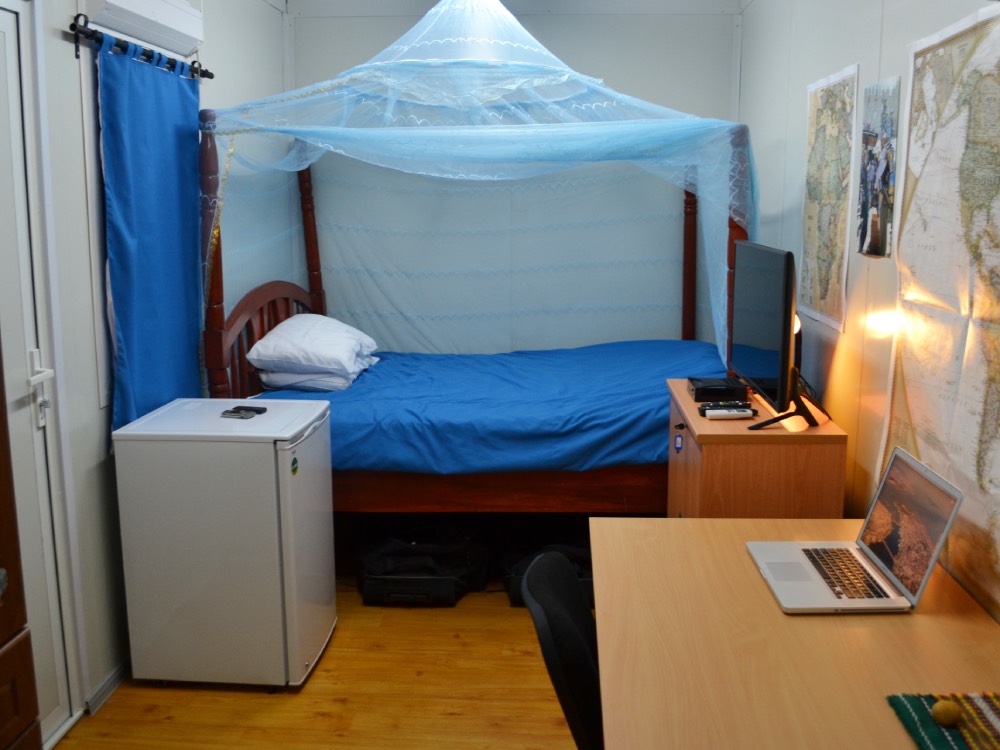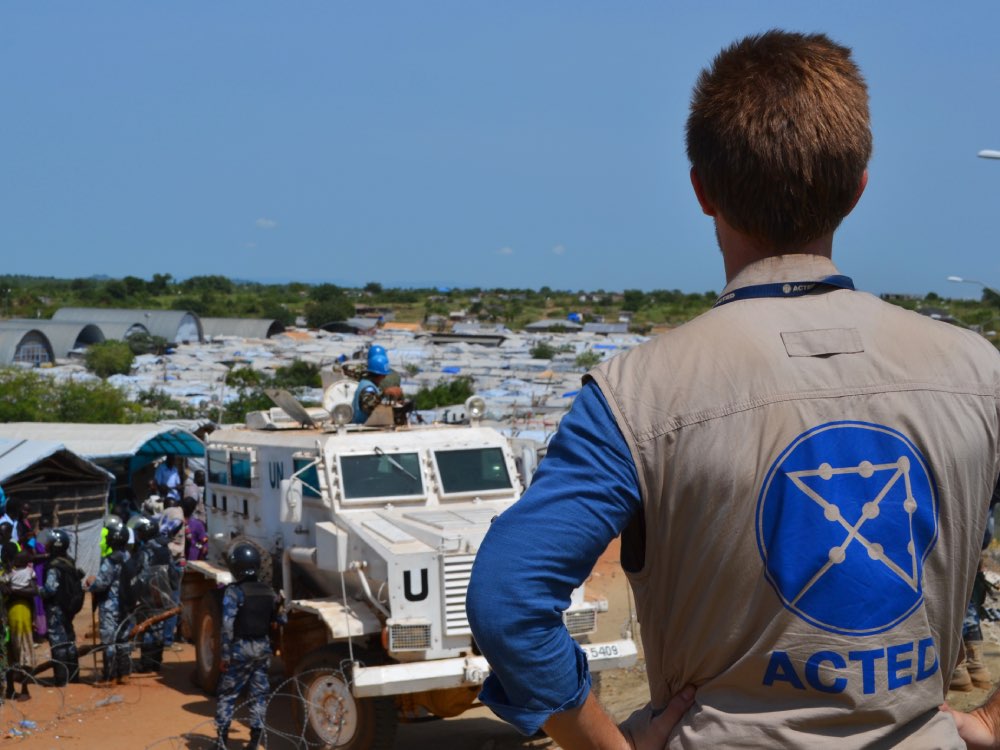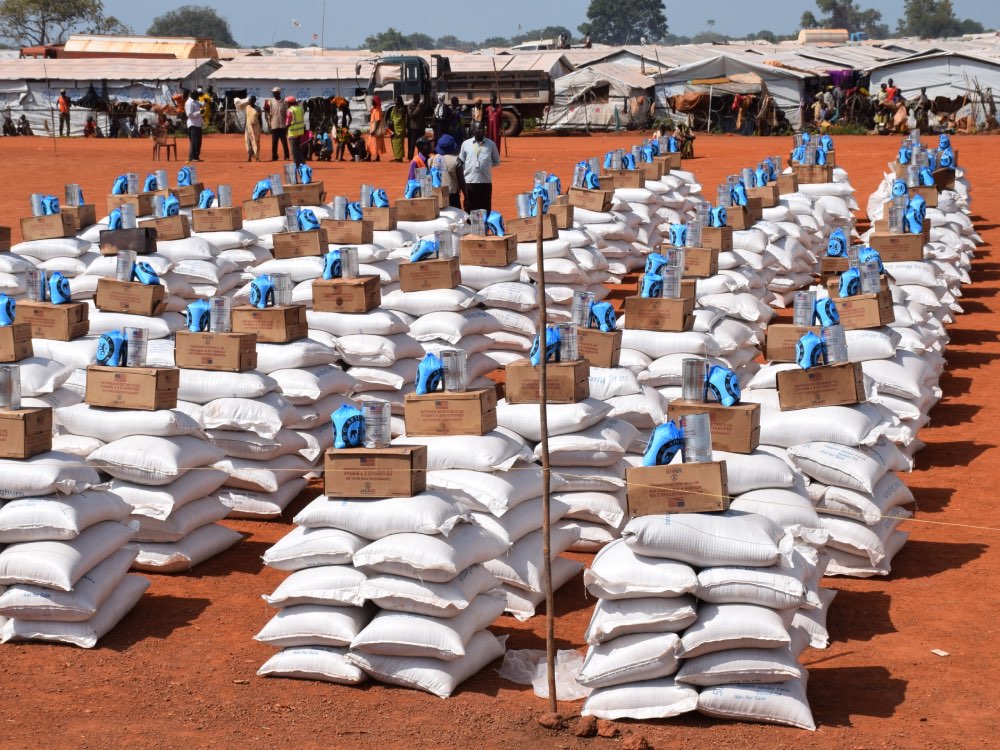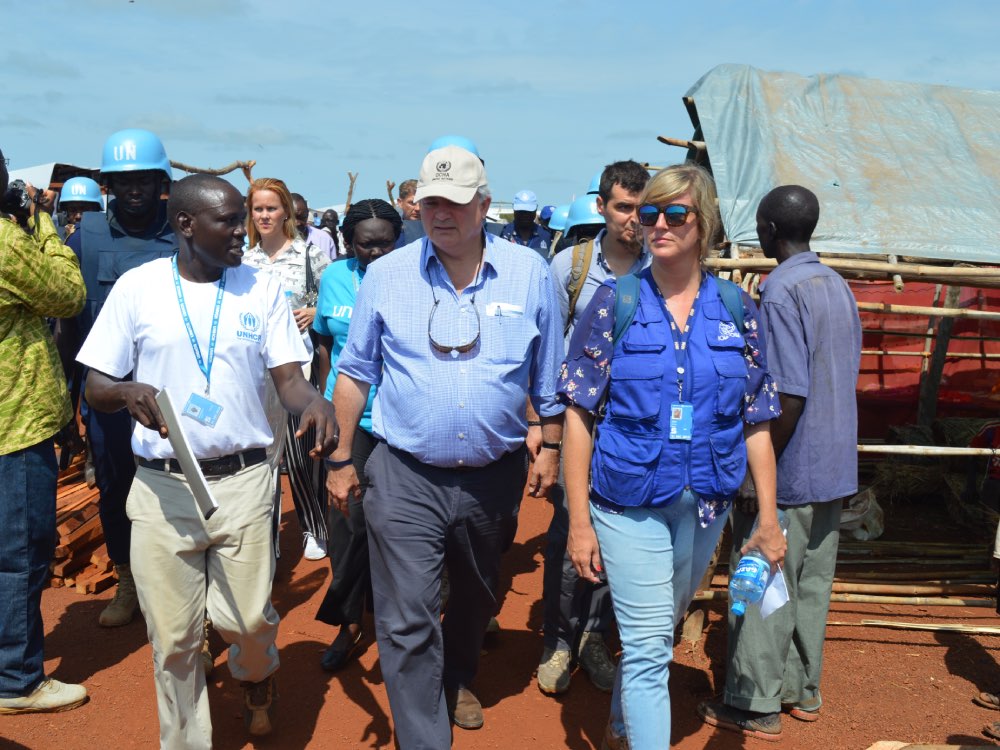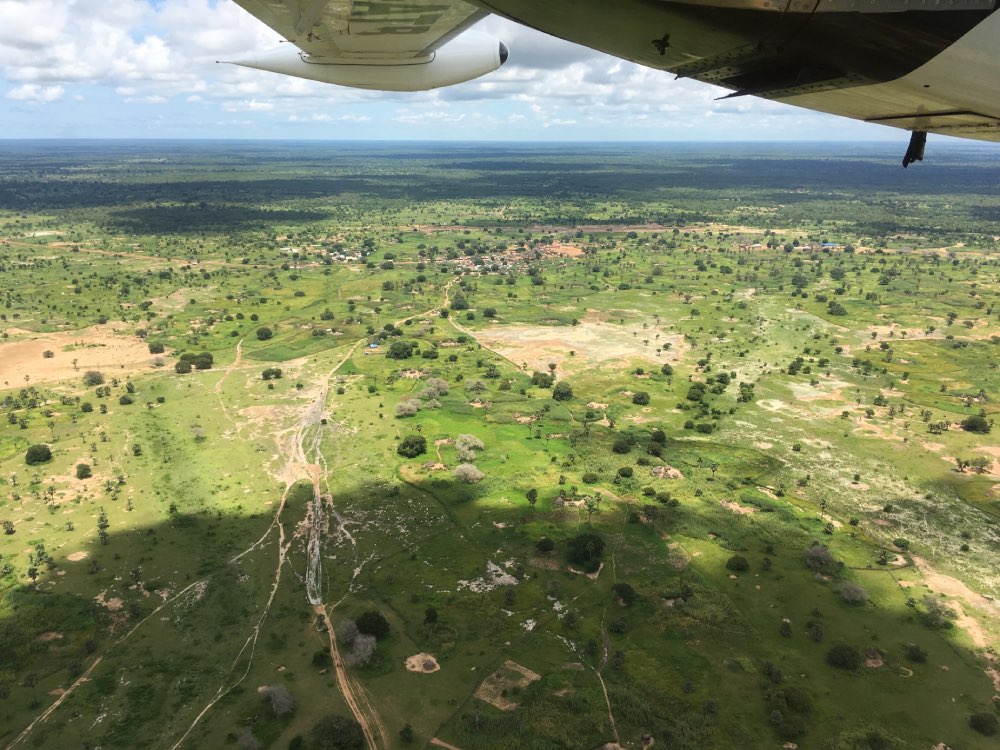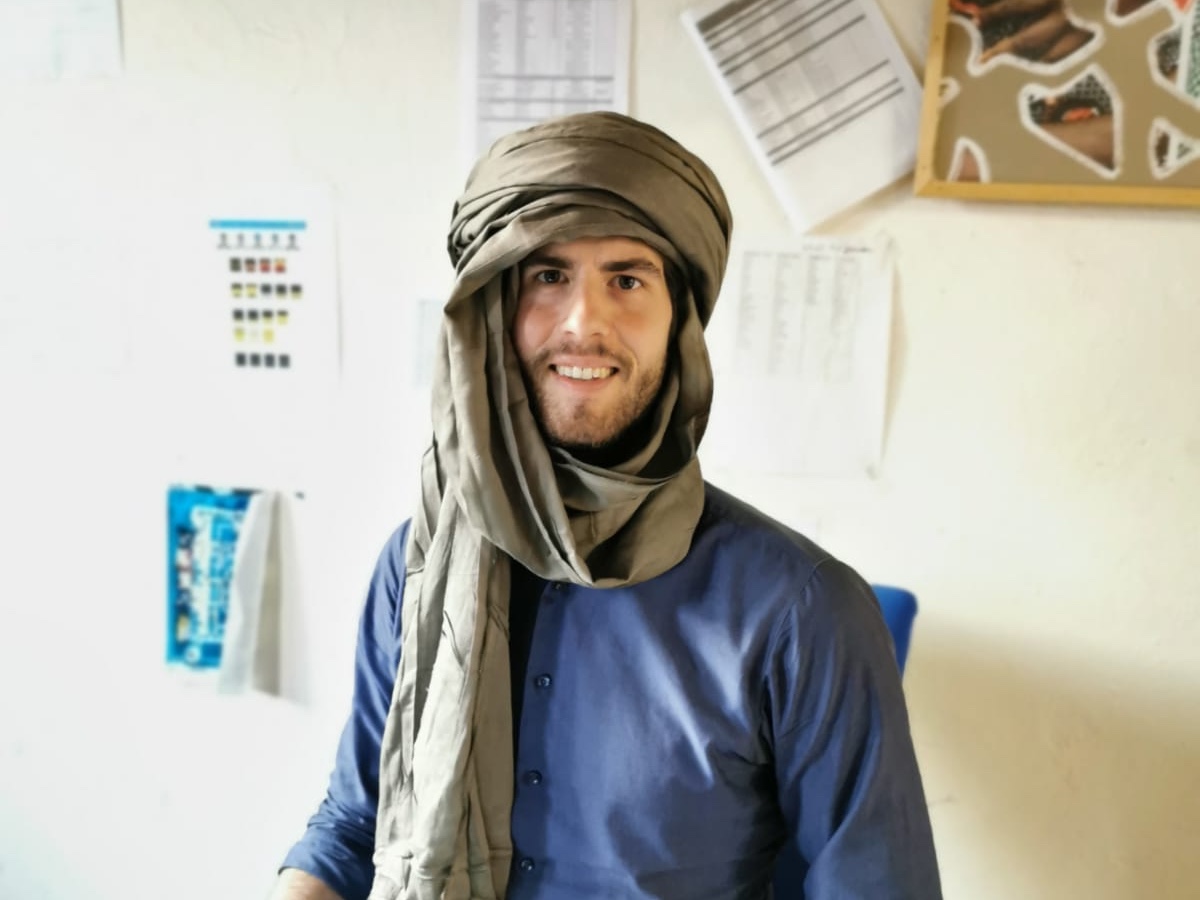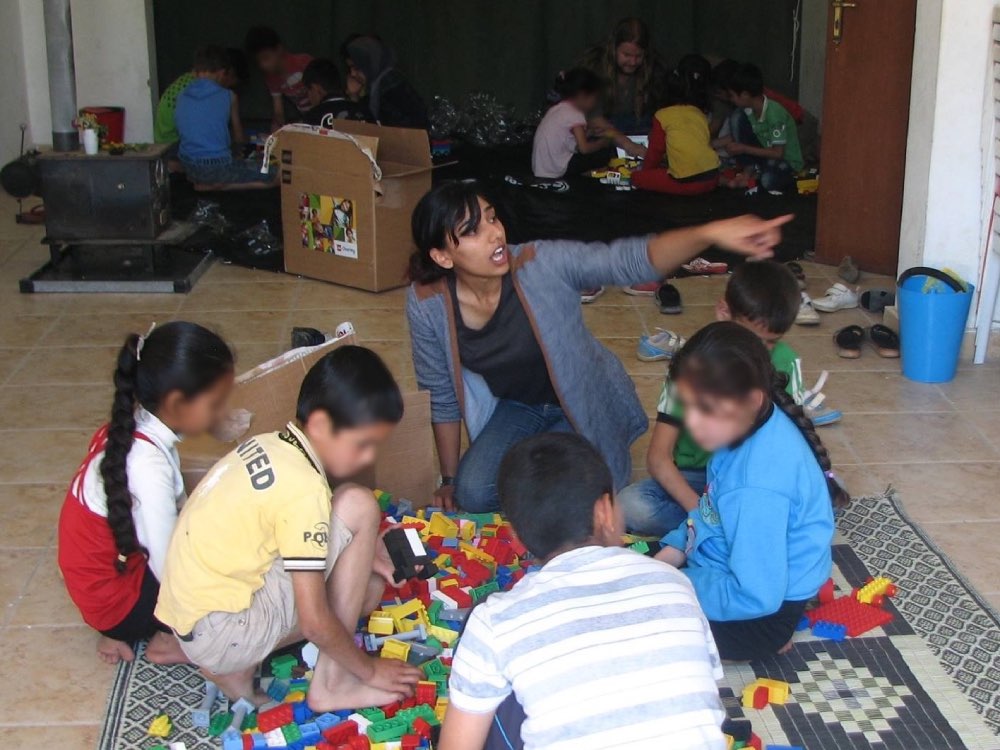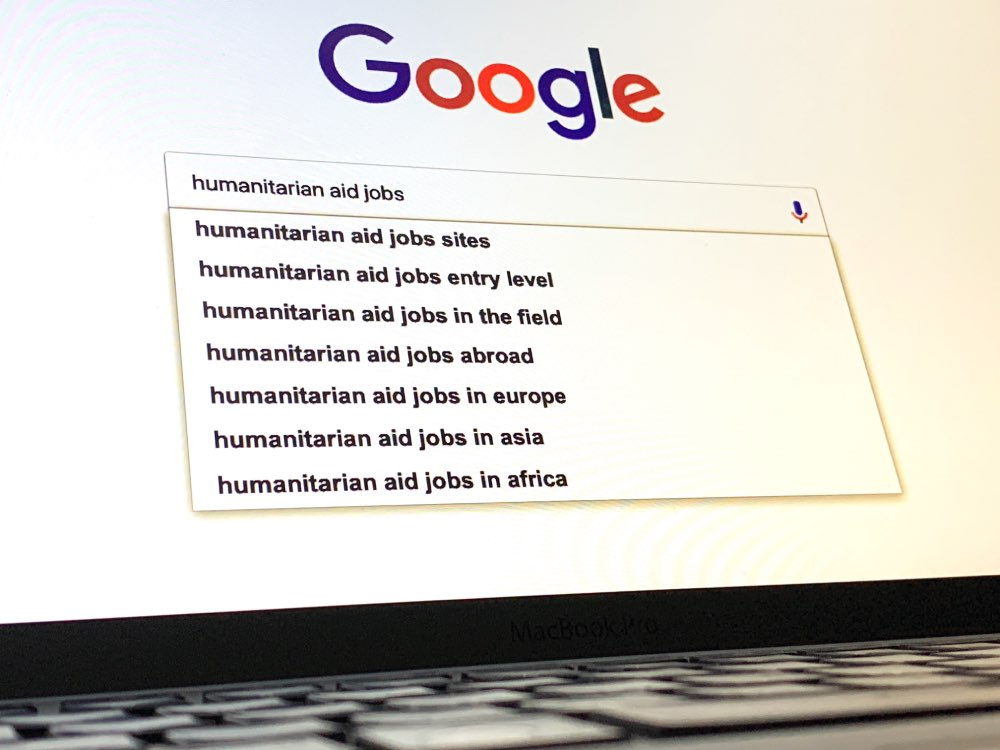
13 ways I got a job in the aid sector
An unlucky number of true anecdotes, success stories, and lucky breaks.
When it comes to career advice, sometimes knowing where humanitarian jobs are advertised and which aid organisations to target is not enough. Sometimes you just need a little inspiration.
These are the stories of how I landed each of my thirteen jobs in the aid sector. I cannot promise that they will inspire you in profound life-changing ways, but I can confirm that they are all real examples of the many (surprisingly simple) ways to get your foot in the door. I hope at some point while reading this you will mumble to yourself, “I didn’t know I could get a humanitarian job by doing that.”
Three tactics
During my humanitarian career I’ve used three main tactics when searching for my next job:
- Apply: You’re probably doing this already. Firing off applications to online job advertisements is the default approach – but it’s often the least effective tactic. Submitting an application gives you no real advantage when used on its own. Try combining it with one or both of the following tactics.
- Be there: Simply being in the country where you want to work gives you a massive edge over other applicants who are applying from abroad. The recruiting organisation can interview you in person; they know that you can handle the living conditions; and it (usually) means you already have a work permit.
- Network: The people you know are the wind in your sail. This is especially true in the humanitarian sector, because aid workers change countries and posts frequently. Your colleague in Maiduguri today may be the crucial link to your next job in Sana’a. Overcome your timidness and reach out to everyone you know.
1. The spray and pray

2. The promotion
Young professionals (and aid workers) often forget that the three tactics can also be used to make career moves from within the organisation that you already work for. Applying as an internal candidate, being present in the office, and developing relationships with your colleagues are all different versions of “apply”, “be there”, and “network”. They are excellent avenues for promotions or lateral moves to other positions.
Case in point: after five months in Jerusalem, my internship came to a close. My bosses had no obligations beyond bidding me bonne chance and offering to be a reference during my upcoming job hunt (a classic intern compensation package). But instead, my supervisors offered me a full-time salaried staff position with the organisation. “You’ve made yourself indispensable, and we like you,” they told me.
Without sending out so much as one job application, I had glided into my first paid humanitarian job.
Tactics used: Be there. Network.
3. Use your hidden talent
We all have a secret talent. Yours might be breakdancing, playing the oboe, or tactical explosives training. I have two: handstands (I can do one for over a minute) and filmmaking (my bachelor’s degree is in film editing).
While I was already working in Jerusalem, I decided to get a second job in order to augment my experience and my income. As a rookie humanitarian my CV was far from competitive. As a filmmaker I was out of practice. But humanitarian-cum-filmmaker was a combination that suddenly made me unique and attractive. Indeed, in seemingly no time I had secured a job as a Production Assistant, subtitling video interviews in Arabic for a local NGO that made documentary films.
I would never have gotten the job if I was not already living in Jerusalem and if I had not been recommended by a friend. But the other lesson here is to explore opportunities in the aid sector that make use any skills that give you an edge over other candidates – whether it’s speaking Farsi, taking photographs, or juggling (yes, juggling).
Tactics used: Be there. Network. (And use your secret talent.)
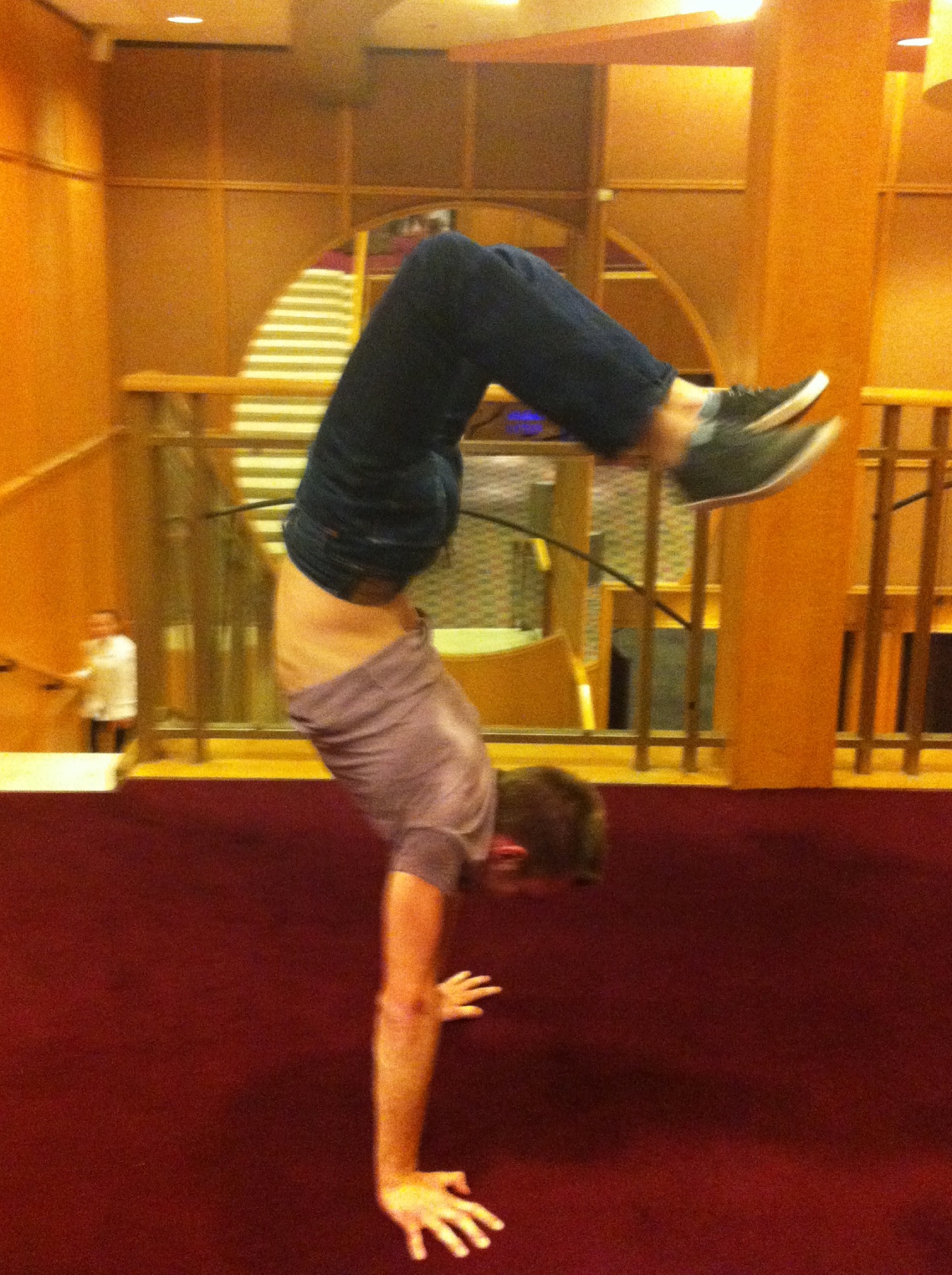
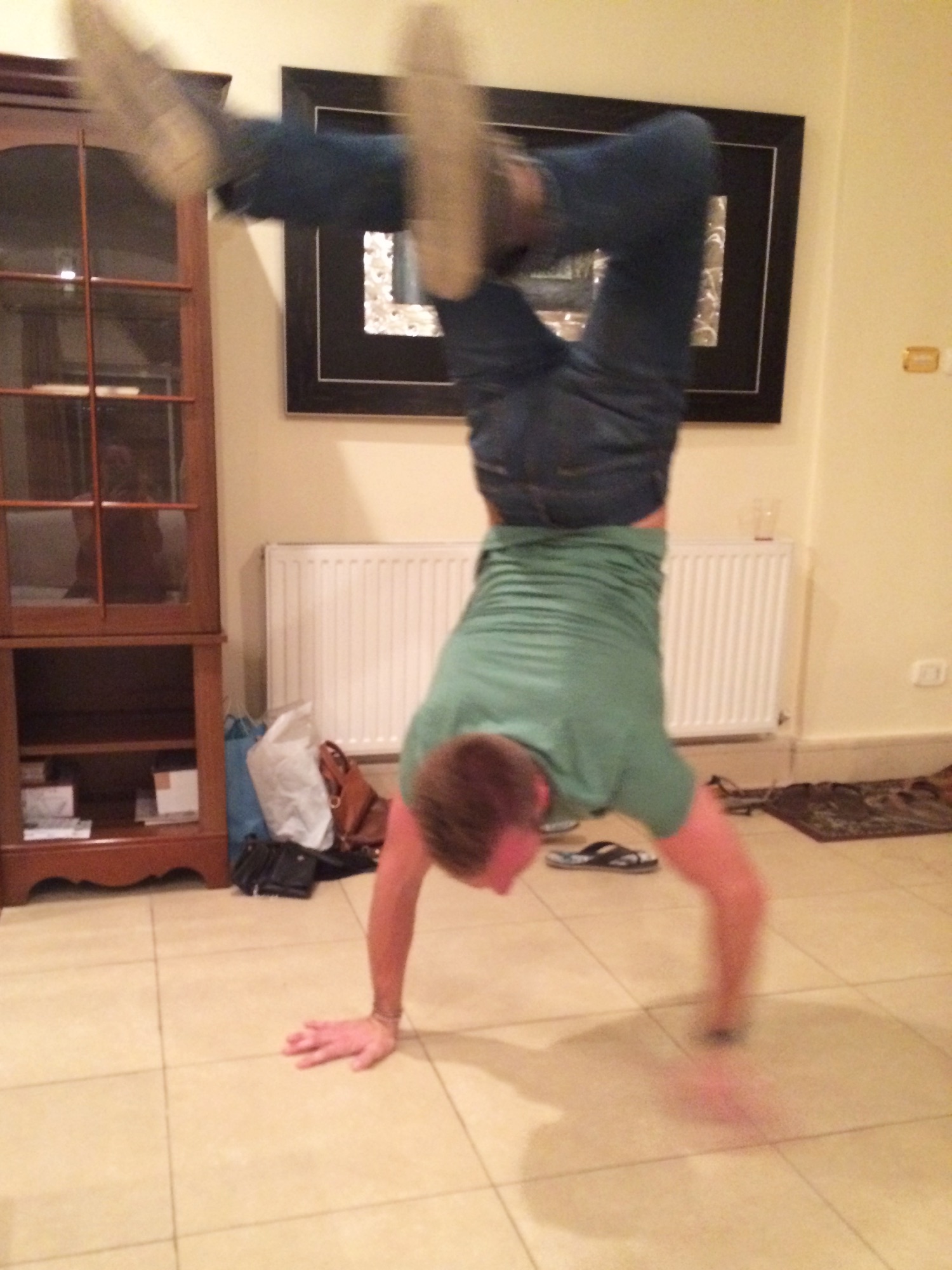
4. The informational interview marathon
The informational interview is a bit like going on a date but pretending not to know you’re on one. You’re both giving each other eyes, but neither one can admit it so instead you talk about the things you’re looking for in a relationship and hope they take the hint.
When I made a career pivot from peace-building to emergency response work, I speed-dated my way through a record number of informational interviews.
I took a week off from my job in Jerusalem and rode the bus to Jordan, which was the epicentre of the Syrian refugee crisis at the time. Before arriving I set up six informal coffee chats with humanitarian acquaintances (mostly friends-of-friends) who were working in Amman.
At the end of each meeting, as we sipped our last drops of cappuccino, I always asked the same question: “Is there anyone else you can connect me with while I’m here?” By the end of the week, six interviews had grown to fourteen, and several had promised to share my CV with their colleagues further afield.
One month later I received an email out of the blue: “I understand from my colleague in Amman that you are interested in working with the UN in South Sudan. Look at the attached job description, and if you are interested please send me your CV.”
My match had found me, and I soon landed my first job with the United Nations.
Tactic used: Network.

5. The lunch table schmooze
I saw them every day, riding in from the camps on the backs of pickup trucks. Their faces were sweaty, sunburnt, but always smiling. I knew these women were doing real humanitarian work in the IDP camps, while I was writing reports in an air-conditioned bunker. Their job looked like everything I’d imagined aid work to be, and I wanted it. Badly.
Fortunately, we shared the same picnic tables in the UN base’s outdoor cafeteria and I saw them several times a week. During one blistering Juba lunch hour, I decided to pop the question. I walked over to their table, introduced myself, and blurted out, “Your job looks incredible. How can I get your job?”
They laughed it off. “You work for the UN. You want to leave your nice office and work with us?”
“I’m serious.” I replied. “I want your job. What do I need to do?”
They exchanged glances. A position would be opening at the end of the year, they told me. “You should apply!”
Three months later, after the women had expertly steered my application onto the desk of their Country Director, I was hired as a Camp Officer.
Tactics used: Be there. Network.
6. The Google Chat miracle
Back in the days when people still used Google’s browser-based messaging service, I found myself jobless between contracts with no new leads. A gloom descended upon me as I considered the volume of job applications I would need to churn out in the coming weeks. But then, like a bolt of lightning from Mount Olympus, a miracle happened. While casually G-chatting with a former boss, she let slip that they had a new project in Amman that needed a manager.
“Don’t you want to come back and work for us?” she asked.
One month later, I was in Jordan as a newly-minted NGO project manager, with the shock of how easy it was still lingering. No job applications and almost no effort had been required from me. As my career progressed and my network of industry friends and trusted colleagues expanded, these types of mana-from-heaven job offers would happen time and again.
Tactic used: Network.
7. Thank you for volunteering; you're in charge
Imagine volunteering for a stint at your local charity. You expect to make a few sandwiches, hand out clothes, and reconnect with the spirit of altruism. But before you can slice one tomato, you are pulled aside and asked if you wouldn’t mind running the organisation for a few months instead.
This is what happened when I arrived on the shores of a Greek island in 2015. I’d come to Lesvos after seeing the humanitarian crisis unfolding on the news. I wanted to ditch my NGO office work and rediscover my passion for helping people face-to-face. So I booked a flight to Lesvos and showed up on the beach without much of a plan. I wasn’t looking for a job; I just wanted to volunteer.
On my very first day, the founder of the organisation sat next to me for dinner. We chatted, and after hearing a few details about my professional experience as an aid worker (which was not much), he paused and said, “We need someone like you. I’m going to put you in charge.”
The next morning I was in the NGO’s ramshackle office sorting out the admin and finances as the new Country Director. It wasn’t the sandwich-making experience I had expected, but somehow it was just right.
Tactic used: Be there.
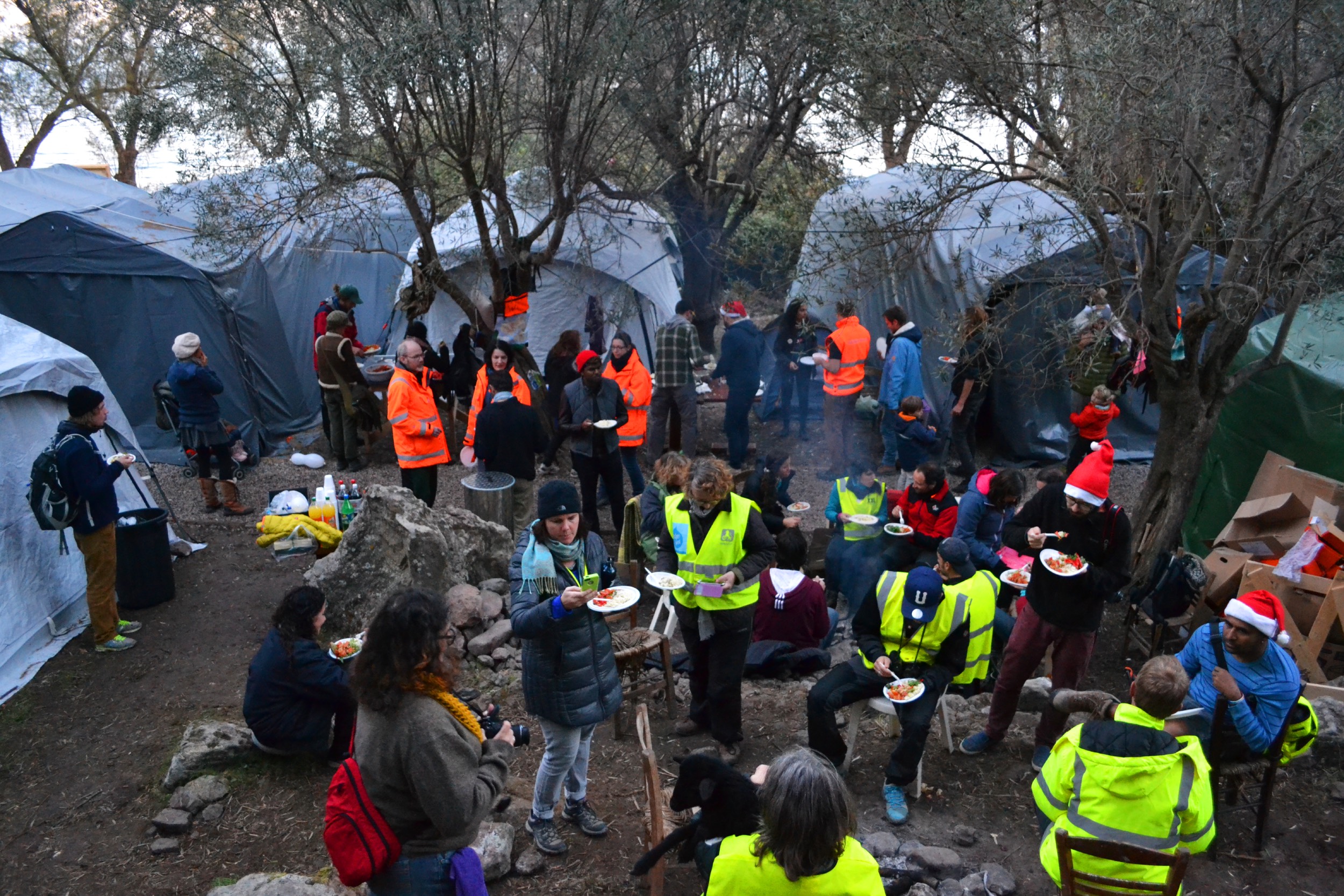
8. The H.R. back door
Human resources departments have a gloomy reputation as the gatekeepers of dream jobs, capable of tossing aside your carefully crafted application without considering all of your strengths. Indeed, this reputation is sometimes reality. HR can be a powerful sentinel that guards precious job openings. But their influence can be turned to your advantage, and they can also be the key to an aid organisation’s back door.
In 2016, when I wanted to return to a humanitarian NGO for which I’d previously worked, I had two options: I could stalk their careers page for new job advertisements or I could contact old field colleagues for leads. Unfortunately, I didn’t see any relevant positions advertised, and none of my old colleagues could help because I wanted to work in a different country.
Then I remembered the HR officer who had processed my first recruitment. We’d had a good rapport when I met him briefly in HQ. I dug up his email address and told him that I would love to return to the organisation. He replied, saying that he would review their global openings and get back to me if anything fit my profile. Days later, he wrote again: “We might have an Emergency Project Manager role opening for our mission in Afghanistan. Would you be interested?”
Within days, I was interviewed and offered the job before it was even posted on their website. The glowering HR sentry – with his insider access to secret, as-yet-unadvertised openings – had turned friendly doorman, letting me back in with a wink.
Tactic used: Network.
9. Ask and ye shall receive
“If you don’t ask, you don’t get,” once said Mahatma Gandhi (or Stevie Wonder, according to some corners of the internet). The maxim also holds true for professional networking, although that probably wasn’t the revolutionary’s original intent. The fact is: if you don’t state your intentions clearly, your colleagues and supervisors won’t be able to help nudge your career in the right direction.
My career goal was to do camp management for a specialised UN agency. At some point I decided to email an old colleague who currently had my dream job and ask her how I could follow in her footsteps. I was direct (“Do you have advice for getting a camp management job with your UN agency?”) but had low expectations (“I’m thinking 1-2 years in the future after I get more experience”).
Ten days later she replied: “I can definitely get back to you on career advice for the future. But just out of curiosity, would you be willing to come back to South Sudan as a camp manager right now? We just opened a new IDP camp (25,000 people so far). I think you would be great.”
Instead of 1-2 years, I had my dream job in 1-2 months. In the end it turned out to be the best job of my humanitarian career. If I had never asked, I would never have gotten it.
Tactic used: Network.
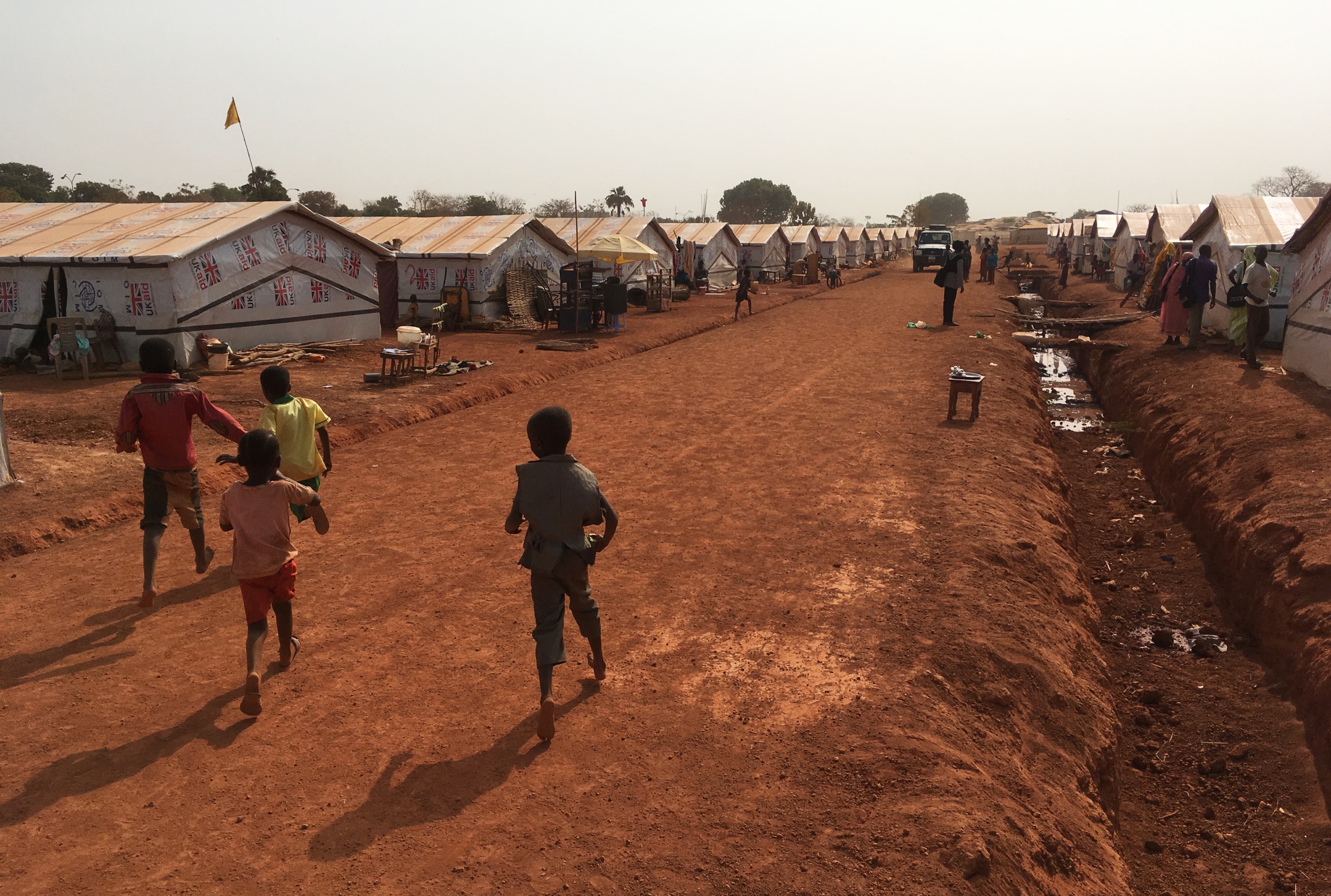
10. Career resuscitation via WhatsApp
In summer 2016, after five years of international aid work, I made the ill-fated decision to return home and transition my career to the United States. But after only a few weeks back home, I found myself depressed, missing my friends overseas, and stricken with the worst throat infection of my life (I would soon be in hospital). I knew I had made a colossal mistake, and I feared that I’d lost my humanitarian career forever.
Then, somewhere in my endless daze of pain, my phone buzzed. A WhatsApp message appeared from an old boss: “Hey! Where are you these days? Are you interested to come to Somalia? I’m hiring for a camp management position. We would be very happy to have you!”
I swear I heard angels singing. Life was breathed back into my career, and within a month I was landing on the beaches of Mogadishu, an international aid worker once again.
Tactic used: Network.

11. The one time I used a business card
Business cards have many uses: taking up space in drawers, reminding you of that meeting you had with that person about that thing, and picking stray bits of lunch from between your teeth (if the card is thin and sturdy).
There is a fourth function, some claim, which is as a business networking forget-me-not. I’ve never used them in this suggested capacity – except once.
When I was managing camps for the UN in Somalia, we worked with a number of private companies that provided services ranging from construction and surveying to human resources and armed security escorts. One time, a senior executive from one of these companies visited our Mogadishu office. I met him briefly, but I liked him (and he seemed to like me) and I thought his company was doing cool things. We exchanged business cards and parted ways.
Fast forward several months, when I’d decided to test the waters of private sector aid work. I remembered the executive from Somalia, but had none of his contact info. Then I remembered his business card. I dug through my drawers and – voila! – there it was: crumpled but legible.
I wrote him an email and a few months later it turned into a job in Libya. I kept the card.
Tactic used: Network.

12. The persistence hunt
In 2020 I found myself in a difficult position. Due to personal reasons, I was looking for a job at a specific UN agency in a specific duty station in the Middle East. However, new jobs with the agency in that location were scarce (couldn’t apply); I was living in another country (couldn’t be there); and I didn’t know anybody in the local office (couldn’t network). What I did have on my side was… Time.
Thus began a dogged six-month job hunt, not unlike the persistence technique practiced in the central Kalahari Desert. It commenced in April with long-range networking: reconnecting with old colleagues who introduced me to their friends in the duty station. By June, I managed to arrange a crucial informational interview with a hiring manager. I was surely hot on the trail! Then, for three months nothing happened. Suddenly, in late September, I picked up the scent again: the agency posted three jobs in the duty station. It was a sprint now! I applied, and by late October I was interviewed. A few days later they called to offer me the job.
A half-year hunt ended, at last, in success.
Tactics used: Apply. Network. (And lots of patience.)
13. Welcome to town; we're hiring!
Eventually every cowboy hangs up his spurs. After ten years in the field I moved to a big European city with new priorities: family and work-life balance (and skiing). Unfortunately also I moved without a job or much of a network in place.
There was one person in town who I knew: an old field colleague who had arrived a few years before and had joined a humanitarian consulting company. We had only worked together a few times in the field, and that was years ago; but I felt that I’d left a good impression with her. I decided to reach out. “Would you be up for a coffee for some friendly job-seeking advice?” I asked.
“Welcome!” she replied some days later. “I would be happy to have a chat about work stuff. Also, I am about to advertise some really cool consulting roles based here…”
From that moment the ball started rolling, and kept rolling – through CVs and cover letters, Zoom interviews and technical tests – until it ended with a job offer four months later.
Like a curtain call for an ensemble cast, the thirteenth anecdote is the only one where I utilised all three tactics together – apply, be there, and network – to land a job. This one took the whole lasso to wrangle, as an old cowhand might say.
Tactics used: Apply. Be there. Network.
February 2022
Related posts
Take a peek inside aid worker accommodation, from apartments and guesthouses to containers and, yes, tents.
Don’t bother with the United Nations. Aim for NGOs that you’ve never heard of before.
From medical assistance and food distribution to logistics and finance, your humanitarian career is shaped by your technical specialisation.
The veteran Camp Manager explains why the job is among the most challenging in the industry. And why, after nine years, it’s also her favourite.
Some aid workers spend their career chasing the field. It’s an illusion that is always just over the horizon.
Growing up in rural Sweden, the Red Cross delegate never aimed to be an aid worker. Now, at 33, he has built a career working with communities amid crisis and conflict.
The Syria-based Protection specialist reflects on the power dynamics of aid and the privileged position that humanitarians often have in fragile countries.
You could skip this article and just go to ReliefWeb.

